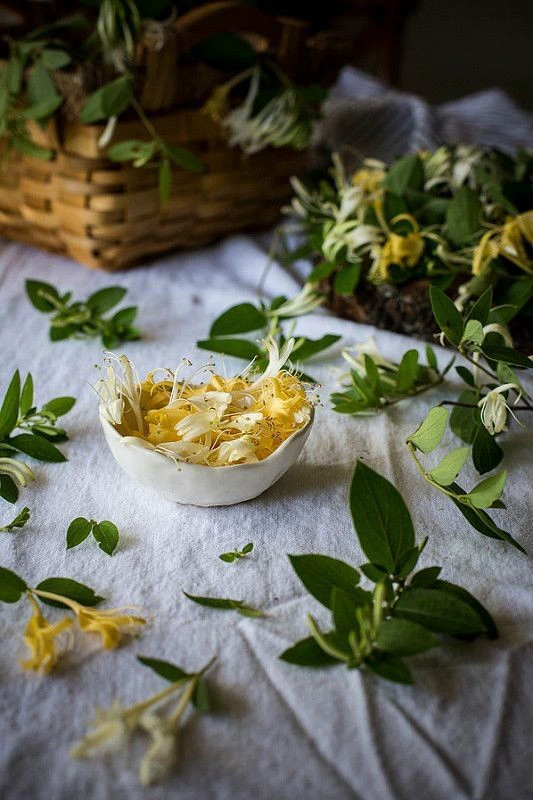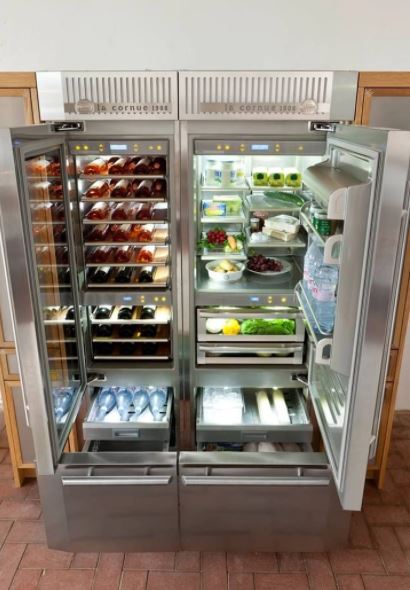The early man had to rely on the wild to get his nutritional needs met, with most of his foods sought from their natural habitats and in their most fresh forms. This means that most of the foods he gathered to meet his nutritional needs were wasted when he is unable to finish them on time.

However, with advancements in knowledge and technology comes the invention of preservation methods. One of such inventions is the refrigerator which makes use of cold storage to keep food longer than would have been possible if exposed to the elements. This means man has been able to keep his foods for longer and avoid wastage as much as possible.
However, while the cold, chilly air of the refrigerator can help keep food longer, it is worth stating that not all foods are ideal for refrigeration, especially considering the effects of refrigeration on such foods. Foods like that and the effect of refrigeration on them are our focus in this writeup. Find the foods below:
1. Watermelon Watermelon is undoubtedly one of the most popular fruits in the world and is highly valued for its nutritional qualities. However, keeping it inside the fridge could strip away some of these touted nutritional qualities as USDA research revealed that this can break the antioxidant chain of watermelon.
Watermelon is undoubtedly one of the most popular fruits in the world and is highly valued for its nutritional qualities. However, keeping it inside the fridge could strip away some of these touted nutritional qualities as USDA research revealed that this can break the antioxidant chain of watermelon.
2. Potatoes According to Food Network, exposing your potatoes to cold temperatures is capable of breaking down the natural starch content of potatoes. This invariably would make your vegetables unpleasantly sweet and with a gritty feel or texture.
According to Food Network, exposing your potatoes to cold temperatures is capable of breaking down the natural starch content of potatoes. This invariably would make your vegetables unpleasantly sweet and with a gritty feel or texture.
3. Honey Honey, a natural sweetener, is often touted for its great nutritional and health qualities. However, storing your honey in cold temperatures may make you lose some of its associated health and nutritional qualities, as the cold temperature can make it crystalize and seize up in cold temperatures.
Honey, a natural sweetener, is often touted for its great nutritional and health qualities. However, storing your honey in cold temperatures may make you lose some of its associated health and nutritional qualities, as the cold temperature can make it crystalize and seize up in cold temperatures.
4. Tomatoes Also, according to Food Network, keeping your tomatoes in the refrigerator is not a good practice. This is because when kept in cold temperatures, your tomatoes become dull and mealy, thus making them lose some of their appeals.
Also, according to Food Network, keeping your tomatoes in the refrigerator is not a good practice. This is because when kept in cold temperatures, your tomatoes become dull and mealy, thus making them lose some of their appeals.
5. Onions Onions, especially when uncut, are best stored at room temperature. However, when you keep your onions at cold temperatures, according to Food Network, the humidity of the refrigerator can make them mouldy and mushy. This could make them unappealing and lead to their deterioration.
Onions, especially when uncut, are best stored at room temperature. However, when you keep your onions at cold temperatures, according to Food Network, the humidity of the refrigerator can make them mouldy and mushy. This could make them unappealing and lead to their deterioration.
6. Bread Bread is one of the most popular, fast, go-to foods in the world, and it is a common sight to see it stored in the refrigerator. However, while this practice can help keep the growth of mould at bay, refrigeration can dry out bread, which makes keeping your loaves of bread on the counter a better storage approach.
Bread is one of the most popular, fast, go-to foods in the world, and it is a common sight to see it stored in the refrigerator. However, while this practice can help keep the growth of mould at bay, refrigeration can dry out bread, which makes keeping your loaves of bread on the counter a better storage approach.
7. Nuts According to Food Network, keeping nuts such as peanuts, cashew, almonds, walnuts and others at cold temperatures can help prevent the natural oils in the foods from going rancid. However, exposing them to cold temperature also stifle their nutty flavour, and shelled nuts can absorb some of the odours lurking in the fridge.
According to Food Network, keeping nuts such as peanuts, cashew, almonds, walnuts and others at cold temperatures can help prevent the natural oils in the foods from going rancid. However, exposing them to cold temperature also stifle their nutty flavour, and shelled nuts can absorb some of the odours lurking in the fridge.
8. Garlic According to Lovefood, keeping garlic in the refrigerator makes it deteriorate at a faster pace and this is because of the added moisture. It is therefore best practice to keep your garlic in a dry place with good air circulation and at room temperature. Also, the bulbs are likely to last longer if left untouched until you are ready to use them.
According to Lovefood, keeping garlic in the refrigerator makes it deteriorate at a faster pace and this is because of the added moisture. It is therefore best practice to keep your garlic in a dry place with good air circulation and at room temperature. Also, the bulbs are likely to last longer if left untouched until you are ready to use them.
9. Coffee According to Lovefood, coffee often takes the smell of the ingredients and moisture around it, which makes cold storage inside the refrigerator a not-so-ideal one if you don’t want to damage the natural flavour of your coffee. You can instead keep your coffee in an airtight container and store it in a dark place at room temperature.
According to Lovefood, coffee often takes the smell of the ingredients and moisture around it, which makes cold storage inside the refrigerator a not-so-ideal one if you don’t want to damage the natural flavour of your coffee. You can instead keep your coffee in an airtight container and store it in a dark place at room temperature.
10. Bananas Warm temperatures of between 15-20°C (59-68°F), are required for a banana to be rightly ripened. However, according to Lovefood, by keeping your bananas in the refrigerator, you would be halting the ripening process and the skin of your bananas may eventually turn black in the fridge as a result of the impact of cold temperature on the fruit’s cell walls.
Warm temperatures of between 15-20°C (59-68°F), are required for a banana to be rightly ripened. However, according to Lovefood, by keeping your bananas in the refrigerator, you would be halting the ripening process and the skin of your bananas may eventually turn black in the fridge as a result of the impact of cold temperature on the fruit’s cell walls.

 Business7 days ago
Business7 days ago
 Inspirational7 days ago
Inspirational7 days ago
 Politics6 days ago
Politics6 days ago
 Featured6 days ago
Featured6 days ago
 Business6 days ago
Business6 days ago
 Business1 week ago
Business1 week ago
 Latest6 days ago
Latest6 days ago
 Education7 days ago
Education7 days ago



